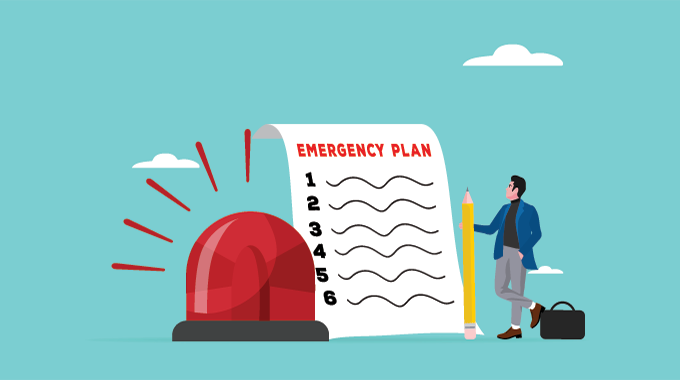
Running a power washing business means working outdoors in unpredictable environments. Rain, wind, extreme heat, cold snaps, or even hurricanes can all throw your perfectly scheduled week into chaos. 🌪️❄️🌧️
And while you can’t control Mother Nature, you can control how well you plan for her.
This article will guide you through how to anticipate weather-related disruptions, protect your business, and even use extreme weather as a competitive advantage. 🧠🛡️
☁️ Why Natural Disasters and Weather Interruptions Matter
Power washing is uniquely vulnerable to the elements. Unlike plumbers or electricians, your team can’t just “work through” the rain or power outages. Here’s how the weather can mess with your operations:
- 🌧️ Rain: Makes surfaces too slippery or unsafe
- 🌡️ Extreme cold: Freezes water lines and equipment
- 🌬️ High winds: Dangerous for ladders and soft washing
- 🔥 Heat waves: Endanger your crew’s health and dry chemicals too quickly
- 🌪️ Hurricanes/tornadoes: Shut down entire regions
- ❄️ Snow/ice: Halt all operations for days or weeks
Unplanned downtime = lost revenue 💸, customer dissatisfaction 😤, and even equipment damage 🧯.
🧠 Step 1: Know Your Local Risks
Different regions have different weather threats. Start by identifying the most likely natural disasters or disruptions in your area:
- 🌪️ Midwest? Tornadoes and hail.
- 🌧️ Pacific Northwest? Constant rain.
- 🔥 Southwest? Extreme heat and water restrictions.
- 🌀 Gulf Coast? Hurricanes and flooding.
- ❄️ Northeast? Snowstorms and freeze damage.
🗓️ Use past years’ weather data to spot seasonal trends.
💡 Pro Tip: Sign up for local emergency alerts and monitor NOAA or The Weather Channel apps for real-time updates.
📅 Step 2: Create a Weather-Responsive Schedule
Don’t book 100% of your calendar solid—build in weather wiggle room.
Try This:
- Reserve 1–2 days a week for reschedules or makeup jobs.
- Offer customers flexible scheduling options (weather-permitting windows).
- Book early morning jobs in summer to beat the heat.
- Stack indoor or covered jobs (e.g., warehouse floors) during rainy weeks.
🧠 Think like a chess player—always plan two moves ahead.
🧰 Step 3: Protect and Maintain Your Equipment
Weather doesn’t just affect your work—it can destroy your gear.
Cold Weather Tips:
- Fully drain machines and hoses to avoid freezing.
- Store equipment in insulated or heated spaces.
- Use RV antifreeze for water tanks if needed.
Heat Safety:
- Keep bleach and SH containers out of direct sunlight.
- Avoid running machines continuously during heat waves—engines can overheat.
- Use insulated gloves and sun protection for crew members. 🧤🌞
🧼 Your tools are your business. Treat them accordingly.
Browse Amazon Here For Top Rated Power Washers And Accessories
🌧️ Step 4: Have a Wet Weather Backup Plan
Don’t let one storm cancel your income. Create a “rainy day operations” plan:
- Indoor jobs (garages, fleet washing, warehouses)
- Equipment maintenance days
- Admin tasks (invoicing, email campaigns, reviews)
- Door-to-door marketing or flyer drops
- Training your team on new techniques
This way, downtime still becomes productive time. ✅💼
📣 Step 5: Communicate Clearly With Customers
Weather delays happen—but poor communication makes them worse.
Always:
- Text or call customers before a storm hits
- Offer reschedule options with real-time availability
- Explain why the delay is for safety and quality
- Apologize sincerely—even if it’s out of your control
Sample script:
“Hi [Customer], due to tomorrow’s forecasted rain, we’ll need to shift your power washing appointment to Thursday morning. Safety and results are our top priority. Thanks for understanding—we’ll make sure it’s worth the wait! 😊”
📦 Step 6: Carry Business Interruption Insurance
A major storm or flood can cause:
- Equipment loss
- Building damage (if you have a shop)
- Weeks of canceled work
Standard liability insurance might not cover weather events. Ask your insurance rep about:
- Business Interruption Insurance
- Inland Marine coverage for mobile equipment
- Natural disaster riders or endorsements
🛡️ You don’t need it—until you really need it.
🌍 Step 7: Use Weather-Proof Services to Stay Profitable
Add services that are less weather-dependent to diversify your income:
- 🧽 Interior concrete cleaning
- 🏢 Warehouse or shop floor cleaning
- 🚚 Fleet washing in garages
- 🧱 Graffiti removal with mobile water tanks
If you rely 100% on sunny-day driveway work, you’re vulnerable. But if 20–30% of your income can happen rain or shine, your cash flow stays steady. 📈
🗺️ Step 8: Plan for Bigger Natural Disasters
For hurricanes, wildfires, or region-wide disasters, have a disaster recovery plan:
- Backup your customer list and calendar in the cloud
- Have photos of all your gear for insurance claims
- Keep emergency contact info and evacuation routes ready
- Know where to source replacement gear fast
Some power washing companies even get hired for post-disaster cleanup work (mud removal, soot washing, debris clearing).
🧠 Think recovery and opportunity.
📈 Final Thoughts
You can’t avoid bad weather—but you can prepare for it like a pro.
🔒 Plan ahead
💬 Communicate clearly
🧼 Protect your equipment
🧠 Diversify your services
The businesses that survive storms aren’t just the toughest—they’re the smartest. Make weather your challenge, not your excuse. ⛈️➡️🚀
Browse Amazon Here For Top Rated Power Washers And Accessories






